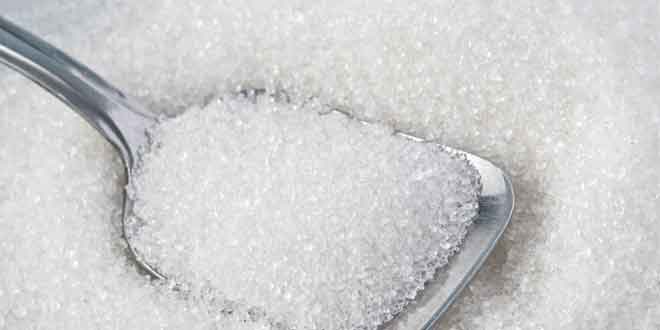
The Harmful Effects of Refined Sugar
Today, an average of every 3 out of 4 adults are consuming refined sugar in some form or the other.Children and teens also consume large amounts of processed chocolates and candies, sugar base cold drinks especially colas.
Bakery goods such as white bread, biscuits, dinner rolls, cakes, pastries and the likes all contain sugar. In some cases the sugar is added while on the other hand when these foods are ingested, they are converted into simple carbohydrateswhich has the same effect in the body as sugar.
Refined sugar and simple carbs like white flour increases the blood sugar level therefore requiring insulin to release and stabilize the sugar level. If these foods are consumed on a regular basis, this constant fluctuation in the rise and fall of blood sugar level may result in weight gain and obesity which subsequently leads to an onset of type 2 diabetes. Sugar dependency is one of the major contributors to type 2 Diabetes and cardiovascular disease.
When sugar is consumed on a daily basis, it continuously produces acid conditions. In order to rectify the imbalance created by the intake of sugar more minerals are required. So, much of the calcium is taken out of the bones and teeth and they get decayed and weakened. Excess of sugar has drastic effects on our body organs. To make use of sugar in our body; sodium, calcium, potassium and magnesium are taken away from our body parts as to metabolize the incomplete food, we must lend vital nutrients from healthy cells of our body.
Added sugars are called empty calories as they contain an entire bunch of calories and they are not essential nutrients as there are no proteins or essential fats and vitamins added to it. Added sugars are sucrose and high fructose corn syrup.
Regular intake leads to lethargy which may lead to weight gain.Other refined sugar hazards may include but are not limited to:
- Tooth cavities especially in children
- An effect on the absorption of vital nutrients into the blood stream.
- An effect on neurological processes.
The Truth about Artificial Sweeteners
In this day and age of technology, where information has become easily accessible, how can someone who is health conscious believe that anything named artificial can ever be considered healthy? Also, consider the fact that the word, ‘artificial’ is the opposite of the word ‘natural.’ Sugar can cause cancer, it is very tough in today’s world to completely ignore the intake of sugar since it is easily and readily available, and the sad truth is that although it is available world widely, it is not good because sugar does not keep our body healthy.
Sugar has an impact on kids, and it’s not just about them becoming hyper after a dose of that chocolate cake. It is because they are in their developing nutritional foundation and even a little sugar can be harmful for their metabolism and hormones. In order to avoid sugar, we should try to read food labels as much as we can and restrict the consumption of processed foods containing sugar and grains.
Consider some of the most common sweeteners you should be aware of:
- Aspartame
- Saccharin
- Sucralose
- Artificial molasses
- High fructose Corn syrup
- Maltodextrin
- Cane Sugar
Healthy Sugar Substitutes
We must eat food in the most natural way as possible without falling prey to the preprocessed and packaged foods in the stores which promise“low sugar.” Being aware of only the natural form of sugars available will help us make healthy choices. Some of these natural sugar substitutes include:
- Raw organic honey – There are many health benefits of unprocessed natural honey. Using it as a sweetener is just one of them.
- Agave Syrup – Obtained from agave plant. It has a low glycemic index and is used in less quantity than sugar.
- Stevia – Obtained from stevia leaves. This is much sweeter than sugar, but people with diabetes can still use this for cooking.
- Natural maple syrup – Pure maple sugar is an unprocessed natural product obtained from the maple tree. It contains minerals such as calcium, potassium, sodium, copper, and makes a good sugar substitute.
- Fresh fruits – Fruits contain natural sugars and can be enjoyed on their own as well as pureed to add sweetness to desserts.
Many psychologists say that it takes 21 days for a habit to break or a new habit to be adopted for good. Work on yourself for those three weeks, remove the sugar from your diet, eat healthy and exercise for a healthy mind. After those 21 days, an occasional intake of sweet treats (and by this we mean low sugar once every two weeks) along with continued physical activity should be part of a healthy lifestyle solution

